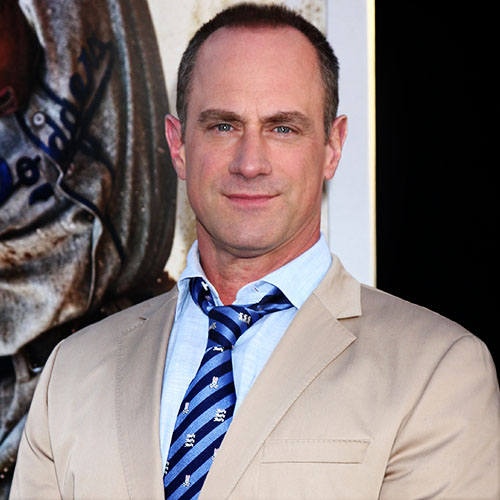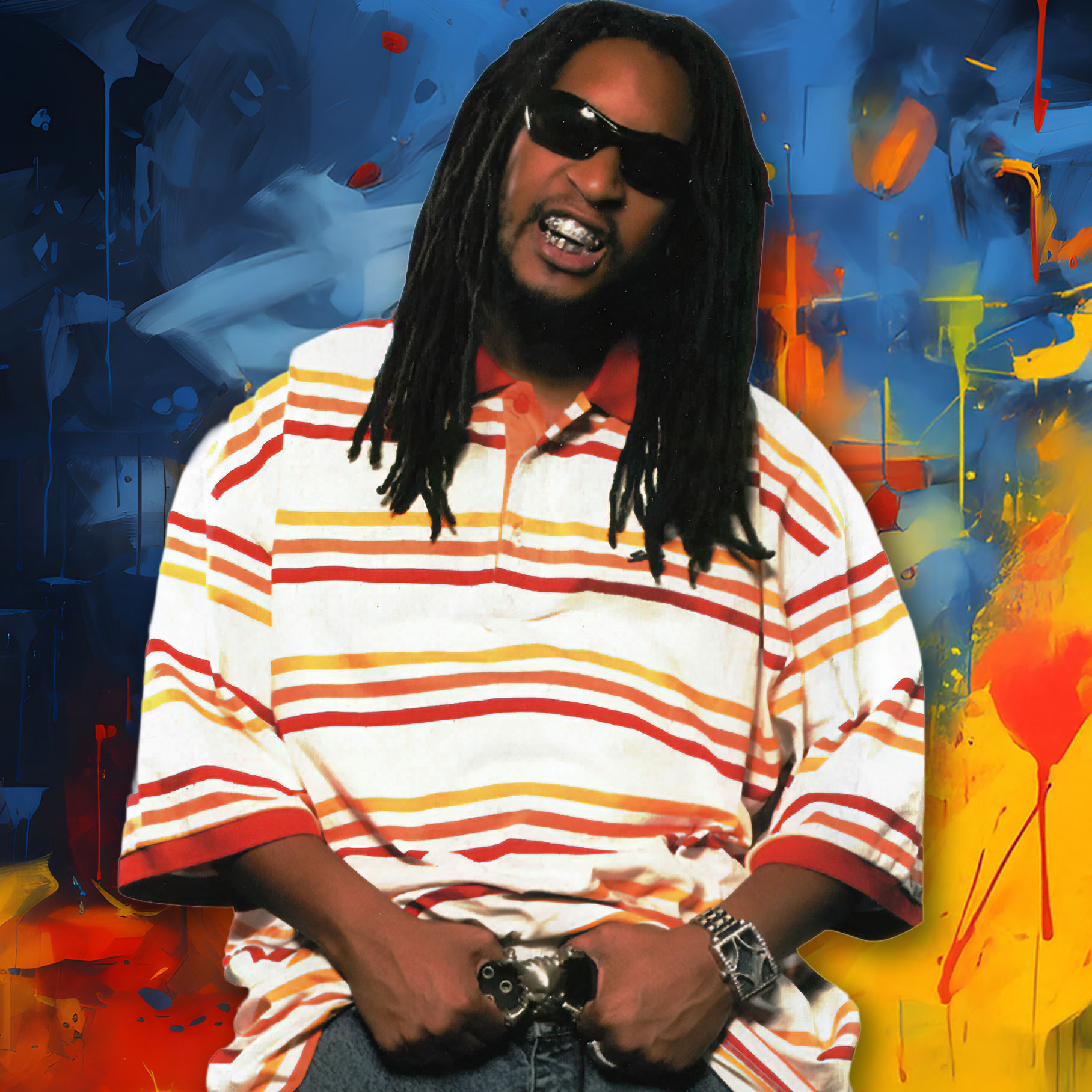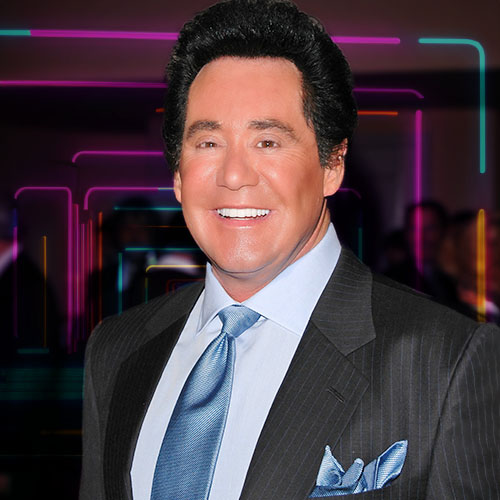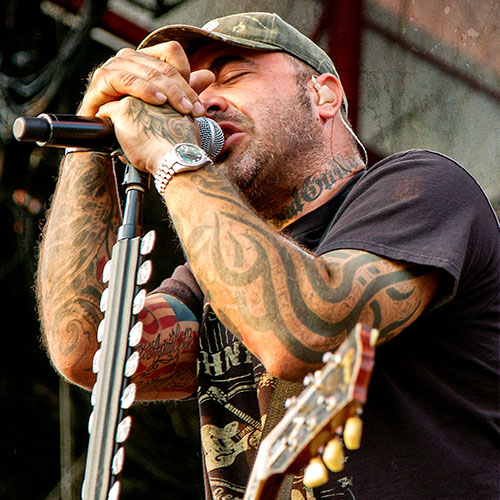Back in the late eighties, who could have foreseen young punks becoming the elder statesmen of rock ‘n’ roll? From “Psychobilly Freakout” to “25 to Life,” Jim Heath’s career as the Reverend Horton Heat has made an impact on a generation of punk and metal musicians.
Reverand Horton: Holy Rock ‘N’ Roller
The Reverend Horton Heat, that esteemed and zany minister of psychobilly, is calling from Orange County, California, between gigs. Horton Heat, which is both the name of the band and of its charismatic frontman, aka Jim Heath, 54, is back on the scene after a four-year absence, the new album Rev reprising the band’s wildly feverish blend of honky-tonk, rockabilly, punk, rock, and blues. One track, the tongue-in-check “Let Me Teach You How to Eat,” has inspired a memorable video in which provocative pinup girls eat their way through a smorgasbord of shortcakes and steaks.
Legendary for more than two decades now, the Reverend Double H seems surprised by the band’s celebrity among other musicians, including such alt-rockers as Motorhead, Soundgarden, and Smashing Pumpkins, all of whom are fans who’ve invited RHH to open for them on tour.
But that’s what happens when you have the audacity to wear purple-and-green suits embellished with fire, or, as Heath says, “these flaming, wild tuxedos that made me look like either the Joker or Ronald McDonald.” One night in 2003, Johnny Rotten of the Sex Pistols introduced himself and chatted up Heath about “Longest Gonest Man,” the first song on the very first Reverend Horton Heat demo tape, which the punk star had gotten from a Dallas deejay. “I was pretty blown away that he had known about us all that time,” Heath remembers. “The funny thing is that the song is just now making this album. I have other songs, too, that never made an album and probably will someday.”
Which is to say that Heath is in no hurry, and his band is firmly entrenched in the scene. What Beavis and Butthead said about everybody’s favorite reverend in 7993 still stands: “This guy rules.”
This is the first Reverand Horton album in four years. Why so long?
Well, we went through a change in drummers. And it’s kind of crazy when you’ve been doing this for so long. We’ve got 10 or 11 albums out, not including compilations, and it gets harder and harder for our regular fans to accept our new songs. When we were doing a new album every two years, it was almost making our fans mad [laughs].
Why would that make them mad?
Fans love the material that you already have. New songs can never be like the old songs because they’re, well, new songs. It takes a while for the new ones to sink into their acceptance zones. New album after new album can overload them and piss them off. Also, you have the opposite effect with the new fans that you make with your new album. They can go back and hear your old stuff and not be as into it. This just pisses off the old fans even more, and sometimes they resent the newbies. Such is life. Here’s my new album, bitches!
You have a song on here called “Schizoid.” Do you have to be psycho to do psychobilly?
I think so, because I’m definitely psycho.
What’s your diagnosis?
Extreme megalomania and putting too much pomade in my hair.
For people who don’t know the term “psychobilly” — which you’re credited with introducing to the United States in 1990 — how would Reverand Horton define it?
Psychobilly is a mainly European form of music. In the late seventies, people started fusing high-energy American rockabilly with punk rock. So you have bands like the Meteors, the Guana Batz, Demented Are Go, Batmobile, all over in Europe. We fit in with that crowd. We go over there, and we do psychobilly festivals. But we do things that psychobilly bands don’t do. We’ll get bluesy, and we’ll get a little jazzy, and we’ll get a-little bit country.
In other words, you expand on the psychobilly sound.
Well, I appreciate that, thanks. It wasn’t conscious. I just do what I like to do, and I’m obviously influenced by a lot of things that aren’t psychobilly — all sorts of mid-century American stuff. I really love the music of Henry Mancini and the movie soundtracks from the mid-century, Ennio Morricone, the spaghetti-western music. I’m not so sure a slow instrumental would fit in with the psychobilly crowd too well. … Actually, all of us in this scene have been pretty good about having an open mind. In general, the rockabilly, psychobilly, swing, surf-guitar, and country people are all down in it together.
You like to combine all those elements on occasion.
I think that’s a natural evolution. Every time I try to plan something musically, it never ends up being what I thought. It’s almost a spiritual thing, like something hits you from outer space. I’m in the middle of doing a country album, and I get hit with all these wild surf-guitar ideas. I just roll with wherever I’m taken, I guess.
How vested are you in country music?
The album before this one, Laughin’ & Cryin’ With the Reverend Horton Heat, was gonna be pretty much a straight country album. And it got sidetracked the way I just described. So this album definitely rocks harder than that one. Me and [stand-up-bass player] Jimbo [Wallace] said, “You know, we’re a rock ‘n’ roll band. That’s what we should do — rock ‘n’ roll.”
I can’t imagine you in a conventional job. Did you ever have one?
Oh, I used to have regular jobs where I had to sit in a cubicle wearing a shirt and a tie. But I had a boss who yelled and cursed at me all day long, so I knew I couldn’t do that. In my very early twenties, I’d already been in bands that made money. In fact, I was in bands then, too. But in Dallas, I worked for Neiman Marcus, the famous store. That’s where the guy yelled. But luckily there was another guy who was above me. He got yelled at way more than me.
What was your job description?
Profit planning, forward accounting.
Wow. That’s the other side of the brain.
Oh, yeah, totally. That was before I realized what a waste of time college was. I went to school to be a business guy. … But I knew I wanted to be a musician when I was 14 years old. By the time I was 16, I was in a band that was traveling and making money. I was off to the races. I knew it wasn’t easy, and there was a lot of bullshit to it, but not as much bullshit as having to get yelled at by a guy and sit in a cubicle.
Where did you grow up?
San Antonio and Corpus Christi, Texas. My parents were from Dallas, and they ended up back in Dallas. I’ve been in Dallas for so long now that it’s my adopted hometown.
Is that why your liner notes talk about conspiracy theories?
Oh, yeah. Dallas is the capital of conspiracy theories, because of the JFK assassination. I never will believe that one crazy guy did that. There’s no way. All you have to do is watch the Zapruder film. It’s a horrific thing to watch, but that doesn’t mean the government should have hidden it for years. If people had seen that film the day after the assassination, nobody in their right mind would have believed that the fatal shot came from behind, from that book-depository building. No way. Because everybody could see that Kennedy got shot from the front right. You can see it on the film.
It does seem that way. But ballistic experts say otherwise.
The explanation I get a big laugh out of is, “He went back because of the reaction of his head against the bullet.” Well, that’s a crock of shit. If something hits your head hard enough to blow the fucker in two, do you think your neck is strong enough to react against that? No. It’s crazy. And I’ll tell you what they did this year. They covered up the X. For years, there was an “X” right on the street where the final head-shot hit him. If you walk up behind that picket fence and look down at the whole scene, it’s a very creepy, eerie feeling. I predict that within the next year they won’t let anybody go back behind that fence ever again. Because if you went back there and looked down at the X, you’d have to believe there’s some kind of giant cover-up. Something happened there. And there’s a deathbed confession by E. Howard Hunt.
I want to know how you conjured the song “Let Me Teach You How to Eat.” It’s not about food, of course.
No, the song’s about sex. It definitely is. But it started out with this guy, Russell Hobbs. I used to work for him. He was trying to be a hippie guru. And he came up to me one day and said, “Horton, let me teach you how to eat.” And he went off on all this macrobiotic stuff, and I was thinking, Well, if I didn’t know how to eat already, wouldn’t I be dead? But I turned it into a song about sex.
“I really just try to write songs that are about what people really go through in life, but, yeah, there’s a lot of [sex, drugs, booze, and cars] in there.”
The song “Smell of Gasoline” started with the idea of sex and danger. Or did it?
Well, there was a girl I knew all the way through school. She was a pretty cool person, very laid-back and understated. My family was pretty much a straight-ahead, good American family, and her family was a little different. They were a little bit hippie, sort of stoners. But they also liked their hot rods and cars. Her brothers always had the car parked in the front yard with the motor hanging out in the tree, you know? And one day we were talking about cars, and she said, “Yeah, I love the smell of gasoline.”
What did you think she meant by that?
Well, I think it was about the whole dangerous aspect of automobiles. You know, you can smell the danger, even though you’re not actually in the car driving 120 miles an hour. So I said, “I know what you mean.” But it wasn’t until years later that I wondered if she was saying something else. Maybe she was just digging me.
Oh, it wasn’t a come-on?
Listen, girls have their ways of saying stuff to you. But I was so dumb and young and naive then that if it had been a come-on, I would have never known it. And for sure I would have never acted on it. But for some reason I’ll never forget the way she said it.
Sex, drugs, booze, and cars are running themes in your work.
Yeah. Well, I really just try to write songs that are about what people really go through in life, but, yeah, there’s a lot of that in there.
Some people might say Reverend Horton has been stuck in adolescence.
Oh, yeah, sure, completely. In some ways I guess it could be said that I’ve grown up. I’m a dad, and I try to do my best in that respect. But the other times in my life, I’m still riding around all over America leading the life of a leisurely rock star …. Not really. This is actually more work than people think.
I always loved the mock sermons you did in the style of a revivalist preacher. Are you still doing those?
No. It was turning our set into a comedy act, and I didn’t want my whole thing to just devolve into a caricature of a preacher. And comedy’s hard. The preaching came out of the blue one night. It just happened, and my band members were looking at me with their jaws on the floor, like, “What are you doing?” But it seemed to work. It’s entertaining. And I’m all about entertaining, so I’ll probably bring the sermon back at some point. I was actually thinking about hiring somebody like Drew Carey to help me write a new sermon every month or so.
How did you conjure the stage name Reverand Horton?
Russell Hobbs, the same guy who said, “Let me teach you how to eat,” had nicknames for everybody. He called me Horton. I had grease in my hair, and was wearing fifties clothes, and hanging around with all these hippies who smelled like patchouli, so he called me Horton. And then when he heard me play and sing, he gave me a gig. I showed up to set up my equipment and he said, “Hey, your stage name is going to be Reverend Horton Heat, okay?”
And I said, “No, that’s not okay. Reverend Horton Heat?”
But he had already listed it in the papers and had flyers made. So at the end of my first set, all these people came up saying, “That was really great, Reverend Horton!” And I was floored. Because I was desperate. I was living in a warehouse with rats and roaches. To be up there by myself, playing my own songs and having 30 or 40 people at my first gig, was something. So I ran with it. I’m glad he didn’t say my stage name was Dog Dookie because I would be here today saying, “Hi, everybody, I’m Dog Dookie.” I would have gone with anything, probably, to get a gig.
You couldn’t have been as desperate as that poor fellow in your song “Spooky Boots.”
I know, I know. That’s a true story, too. He used to run lights for us when we played in Santa Fe, New Mexico. He hung around with a lot of bikers. But he was kind of small, and he walked with a cane. One day I was eating lunch in the club before we set up, and he sat down and started telling me this story.
He said, “I had this girlfriend named Spooky Boots, and she was the best girlfriend I ever had. She did all this stuff that I didn’t even ask her to do. She’d mend my clothes, and every morning she’d come in and help me get dressed. But she moved out. She left.”
The way he talked, it was like it just had happened. He said, “Every Saturday I go to the town square, because that’s where everybody shops. I figure one of these Saturdays she’ll walk by and I’ll see her.” I started to say, “Man, you better not obsess about this too much. Just let her go.” But instead I said, “How long has it been? When did she leave?” He said, “Well, it was 1969.” And this was 2002 or something.
He went looking for her every Saturday for 30 years?
Yeah, poor guy. But we live in a world of instant gratification. You watch these TV shows and everybody gets to fall in love. They show how hard it is for about 20 minutes, and then they find the perfect person. But the world is harder and colder than that. There are people out there who have been lonely their whole lives.
You’ve toured with everybody from the Sex Pistols to Johnny Cash. You must have some stories.
I got to meet Johnny Cash only very briefly. But I got the best Johnny Cash story from Carl Perkins, the great Sun Records artist. He was part of Johnny’s road show for a long time. Carl was the nicest, most gracious Southern guy, always willing to tell stories. I asked him about this story I’d heard that he and Johnny Cash and a couple of other guys were in a hotel room and Johnny grabbed two M-80 fireworks. He wrapped the fuses together, and then taped them together, and lit the things and flushed them down the toilet. That would have made a major explosion, of course, because those fuses don’t go out when they’re in water. With the compression of the pipes, that would have blown out the hotel’s whole water system.
Well, Johnny was a firebug, so I could believe that.
Carl said, “Oh, yeah, that’s true.” He said, “Blew some ol’ boy off his toilet. There was water everywhere. They evacuated the hotel, and the cops showed up.” And since the blast came from the room where the poor guy was on the toilet, they were getting ready to arrest that guy. And Johnny stepped up and confessed. Carl said, “He sent a check every month for years to pay that off.”
We’re out of time, and I didn’t even ask you about your Liquor in the Front album.
Liquor In The Front, Poker In The Rear. That’s a sign you’d see in all those old men’s bars. They’d have another sign in the restroom: WE AIM TO PLEASE, SO YOU AIM, TOO, PLEASE.
At this juncture we would not like to give too much away, but a possibility exists that this editor literally owned a t-shirt emblazoned with the phrase, “Liquor in the front. Poker in the rear.” (This being in loud but elegant neon script, also advertising a bar, of course.) A possibility also exists that the mother of this editor somehow destroyed that shirt upon its very first washing. Moms can be notorious for lacking a sense of humor about some things their teenage boys might do, we have all learned. … Still having a much better sense of humor, Reverand Horton Heat continues to tour today. You might want to check out both old and new albums before you go, however. That way you can be one of the cool kids when you listen. And keep your eye out for one of those shirts – then keep them away from your mom.























